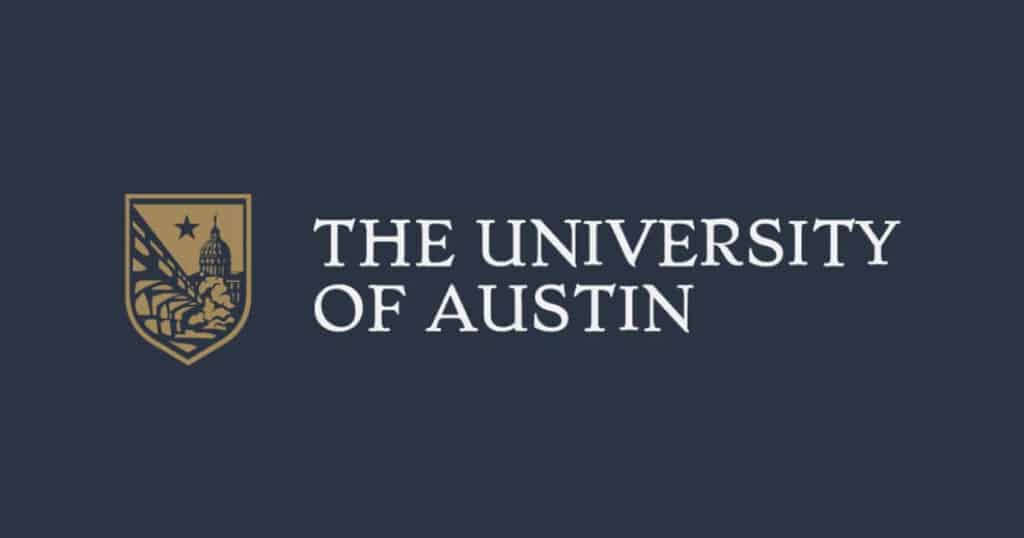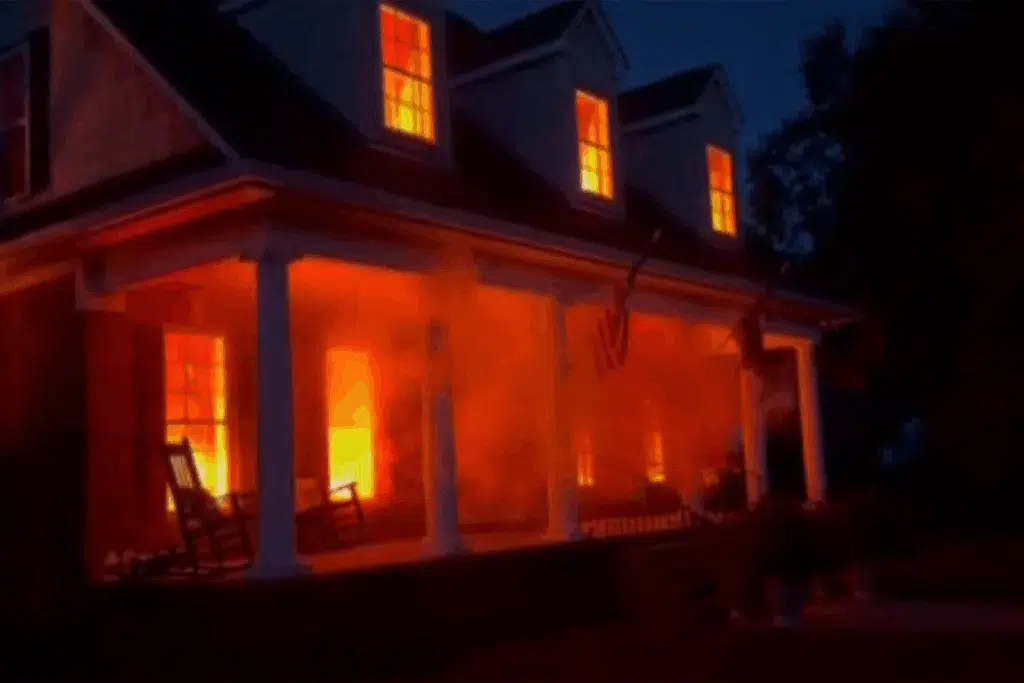
Is the Counter-University Movement Any Match for the DEI Juggernaut?
A group of intellectual mavericks made splashy headlines in 2021 when they announced plans to launch a new university in Texas called the University of Austin.
Backed by a gallery of celebrity intellectuals – its trustees and directors include former Harvard president Larry Summers, Brown University economist Glenn Loury, former ACLU President Nadine Strossen, civil rights leader and former congressman Andrew Young, and the journalists Bari Weiss and Andrew Sullivan – the startup would be dedicated to the classic ideals of open inquiry, Socratic debate, and the unfettered pursuit of truth.
The University of Austin is just one of a number of recent academic experiments challenging what many conservatives and independents see as a stifling leftist monoculture on campus they deem illiberal, censorious, and anti-intellectual.
These countercultural projects reflect a range of reformist strategies coming from inside and outside the academy. In addition to launching new schools, they are creating independent institutes as havens of free thought within existing institutions, and pushing universities to adopt statements that codify academic freedom.
At the same time, Republican legislatures and governors around the country are moving to shut down campus Diversity, Equity, and Inclusion (DEI) bureaucracies at state universities. And in Florida, Republican Gov. Ron DeSantis is taking the most aggressive tack, backing legislation that would defund DEI offices and eliminate courses based on Critical Race Theory, Queer Theory, and other social justice ideologies.
Related: Campus DEI Much More Than He Said/Ze Said
This activity is generating buzz aplenty, but these projects face considerable obstacles – logistical, financial, and legal – that proponents acknowledge may be insurmountable on a meaningful scale, at least in the short term.
For one thing, the upstart efforts are tiny.The University of Austin plans to begin classes in the fall of 2024 with an incoming freshman class of 100 students in 27,100 square feet of rented office space. But the school is in negotiations to receive a land donation to develop its own campus within a planned residential community outside of Austin, Howland said.
Another countercultural startup, Hildegard College in Costa Mesa, California, plans to start entrepreneurship and liberal arts classes this fall at a shared workspace office with an incoming freshman class of just 15 students who will study math and science through the original works of Euclid, Copernicus, Kepler, Leibniz, Newton, and Descartes. They are the ultimate David up against a nationwide academic Goliath that serves more than 16 million undergraduates – thousands of whom already opt out of the system by attending more than 100 Christian colleges in the U.S. And these specialized programs are not likely to appeal to the conventional student who places a premium on good lifestyle amenities and a good athletics program.
“Look, there are huge cultural forces,” said Jacob Howland, the director of the University of Austin’s Intellectual Foundations program. “Is it going to fix higher education? Not this year, not in 10 years. Maybe in 50 years, I don’t know. But we know there’s a huge demand for this.”
The conservative, or “heterodox,” academic experiments share a common theme: a return to a core curriculum anchored in the Western intellectual tradition and a repudiation of academe’s sacrosanct verities on race and gender. In place of DEI, these traditionalist projects vaunt ideals like civil discourse, truth, logic, reason, and excellence that once reassuringly resonated through college catalogues of yesteryear.
These efforts are responding to a plethora of developments in academia, from mandatory anti-bias training and the rise of cancel culture, to colleges mandating that professors commit to DEI advocacy in their teaching and research. Surveys repeatedly show that professors are overwhelmingly progressive and students report that they feel intimidated into silence or acquiescence, particularly on hot-button topics like race, gender, immigration, and climate. In the latest instance of this hothouse climate, Stanford University law students, emboldened by an associate dean of DEI, heaped insults and obscenities this month at federal Judge Kyle Duncan, an appointee of President Donald Trump who had been invited to speak on campus, until U.S. marshals escorted him to safety.
Heritage Foundation fellow Adam Kissel, an assistant secretary in the U.S. Department of Education under Trump, said leftist professors and academic radicals enjoyed plenty of latitude for decades to pursue their research interests, but they eventually overplayed their hand by politicizing education and tampering with the social order.
“Colleges broke the public trust. They’ve started trying to interfere with American culture rather than producing and disseminating new knowledge,” Kissel said. “And democracy came back knocking and said, ‘All right, we’re paying for all of this and we have a say. We trusted you and you abused that trust.’”
While some of these projects, like the University of Austin, profess to be nonpartisan, others lean right and are unabashedly patriotic, embracing free-market philosophy, the Founding Fathers, and character-centric leadership, loosely modeled on the philosophy of Hillsdale College, a small private Christian institution in Michigan that doesn’t accept federal funding and is active in public policy forums and Republican Party politics.
These academic ventures are often targets for skepticism among the tenured professoriate, and sometimes open hostility, as pet projects of conservative donors and right-wing politicians, or as escapist reactionary fantasies seeking to restore Eurocentric chauvinism that has no place in an increasingly multi-racial global culture.
The conservative anti-DEI pushback has taken a variety of forms. On one end of the spectrum are voluntary commitments to academic freedom, open inquiry, and viewpoint diversity. They include The Heterodox Academy, a nonprofit professional organization founded in 2015 and now claiming more than 5,400 members, and the Chicago Principles, created in 2014 at the University of Chicago and since adopted by 98 institutions. The Chicago Principles proclaim that “it is not the proper role of the University to attempt to shield individuals from ideas and opinions they find unwelcome, disagreeable, or even deeply offensive.”
Another tack is developing civics and democracy institutes within a state university, which allows these programs to piggy-back on the sponsoring university’s accreditation and to qualify for public and private funding. Arizona State University’s School of Civic and Economic Thought and Leadership, launched in 2017, offers such courses as Debating Capitalism, The American Founding, and Justice & Virtue. The ASU program also organizes a lecture series that has featured progressive speakers, including Cornel West, Angela Dillard, and Lara Bazelon, and conservatives such as Ross Douthat, Jason Riley, Patrick Deneen, Harvey Mansfield, and others.
Others are in various stages of proposal or development and include the University of Tennessee Knoxville’s Institute of American Civics, and University of Texas at Austin’s Civitas Institute. A fierce debate has broken out this year at the University of North Carolina at Chapel Hill, after the board of trustees voted this year to accelerate the development of a School of Civil Life and Leadership, prompting some faculty leaders to accuse the trustees of acting without faculty input.
Those involved in these efforts describe academia as having flip-flopped from a culture where everyone looked the same and thought differently, to a culture where everyone looks different and thinks the same. Paul Carrese, the director of ASU’s School of Civic & Economic Thought and Leadership, said students should be familiar with a basic understanding of U.S. history “before you talk about transforming America in an activist way.” He said the current foment for more options in higher ed mirrors the K-12 school choice movement to create home schools, charter schools, magnet schools, and other options.
“The history of American higher education is littered with attempts to break away from the restrictions of traditional elite colleges,” Adam Laats, a  professor of education and history at Binghamton University, wrote in Slate when the University of Austin launched.
“The opportunities for failure are huge,” wrote Laats, author of “Fundamentalist U,” published in 2018 by Oxford University Press. “Alternative startup colleges have crashed — and crashed hard — when they have failed to deliver on the basics, things like providing credits, degrees, and reliable financial aid.”
The University of Austin plans to start by offering one bachelor of arts degree in liberal studies. It has raised $34 million, and received $122 million in pledges, toward an initial goal of $250 million, Howland said. (A member of this reporter’s family has successfully applied for one of its one-week summer courses.)
The school’s 22-person administrative team is currently operating out of 4,900 square feet in a rented office building that’s also occupied by several law firms, a family medical practice and a local radio station.
However, University of Austin officials are temporarily referring to their project as “UATX,” because it doesn’t have a certificate of authority from the Texas Higher Education Coordinating Board; university officials are in discussions with the Texas board about relaxing some of the terms and conditions – such as the board’s requirement that UATX must hire all professors in advance of a site visit inspection – and they hope they can receive the certificate in October, he said.
In the midst of the initial fanfare, Harvard University psychologist Steven Pinker and University of Chicago chancellor Robert Zimmer withdrew from the project’s board of advisors, less than two weeks after it was announced. Zimmer issued a statement suggesting he parted ways because he was turned off by the University of Austin’s relentless disparagement of higher education.
With a meaningful return to more traditional models of education highly unlikely in institutions dominated by proponents of newer models, conservatives are resorting to political muscle to force out what they see as chief agents of progressive activism: the growing armies of DEI administrators who oversee speech codes, diversity training, and bias complaints on campus. The Chronicle of Higher Education has tracked about a dozen states where Republican governors and legislatures are moving to shut down campus DEI offices, ban compulsory DEI training for professors, and prohibit the controversial practice of requiring academic job applicants to affirm their commitment to diversity and equity as instructors and scholars, a practice that has been compared to political loyalty oaths. Last month the University of Texas system suspended all DEI activities at its eight universities, after Gov. Greg Abbott warned state agencies and public universities that DEI is discriminatory and can’t be used in hiring decisions for state jobs.
In Florida, Republican Gov. Ron DeSantis and his education adviser Christopher Rufo, a senior fellow and director of the initiative on critical race theory at the conservative Manhattan Institute, are going even further.
Together they have executed what Rufo calls a “hostile takeover” of Florida’s smallest public university, The New College of Florida in Sarasota, by installing six conservative trustees, Rufo among them, and quickly shutting down the college’s office of diversity and equity by firing the director and reassigning four other employees.
RealClearInvestigations was unsuccessful in efforts to interview Rufo (a journalist who in 2021 reported on homelessness for RCI). But he has been publicly outspoken in holding that Florida can serve as a proving ground for “red state governors all over the country.”
“We’re going to abolish DEI bureaucracies,” Rufo declared in one of his many videos. “We’re gonna simply level them, raze them, burn them to the ground.”
In another video, Rufo proclaimed: “I know I’m not going to stop until it’s been abolished, and until we salt the earth.”
That strategy is unmistakable in Florida’s proposed legislation, HB 999, which would ban Florida’s 28 public universities and colleges from using public funds to promote or support majoring and minoring in subjects that utilize “Critical Theory,  including, but not limited to, Critical Race Theory, Critical  Race Studies, Critical Ethnic Studies, Radical Feminist Theory,  Radical Gender Theory, Queer Theory, Critical Social Justice, or Intersectionality” – as defined by the Board of Governors.
The legislation includes a mechanism to wrest control of the academy from what Rufo and DeSantis see as ideological activists who rule the campus: It would not only defund campus DEI offices and functionaries, and prohibit using state or federal funds to promote or engage in “political or social activism”; it would also dismantle a longstanding pillar of academic freedom by taking tenure reviews and hiring decisions out of the hands of academics and handing over control to trustees, who would not be “required to consider recommendations or opinions of faculty.”
DeSantis, widely assumed to be positioning himself as a Republican candidate for the White House, has declared that Florida is “where woke goes to die.” He is also behind another Florida bill, called the Stop W.O.K.E. Act, which would prohibit professors from espousing tenets of Critical Race Theory, such as condemning white privilege and promoting racial preferences, and would make it illegal for professors to critique concepts like objectivity, merit, and colorblindness as racist. The legislation, which is headed for trial this fall, has been temporarily blocked by a federal judge as “positively dystopian.”
Fighting Politics with Politics
The sweeping proposals in Florida have caused alarm even among those who otherwise agree with DeSantis and Rufo that progressive ideology has a stranglehold on academic culture.
The libertarian Reason magazine denounced HB 999 as “a startling attack on academic freedom at Florida public universities.” Johns Hopkins University political scientist Yascha Mounk recently wrote that the Florida legislation is so restrictive that it would not allow him to assign his students to read philosophical articles that advocate for the concept of cultural appropriation – the idea that it’s racist for white people to adopt cultural elements of non-white cultures.
Jeremy Young, senior manager of free expression and education at PEN America, says that the Stop W.O.K.E. Act, if adopted in its current form, could potentially be used to prevent assigning Rufo’s articles about CRT and DEI, which amply quote critical theorists and DEI training materials, without first redacting them to block out offending quotes that express ideas targeted by the legislation.
The Foundation  for Individual Rights and Expression (FIRE), a free speech advocacy organization, is currently litigating to block Florida’s Stop W.O.K.E. Act as unconstitutional censorship of free expression. FIRE says the policy would restrict a professor’s ability to discuss the social advantages or disadvantages of one’s sex or race, and would forbid professors from expressing controversial opinions, “even just for the sake of Socratic discussion.”
Adam Kissel said sections of the Florida legislation that dictate what is taught in classrooms are unconstitutional and likely to be stricken down by courts as impermissible “viewpoint discrimination.” But Kissel said legislatures have broad authority to choose not to fund “unserious” subjects based on critical race theory, queer theory, or fat studies, which he says are anti-intellectual pseudo-disciplines comparable to astrology.
Rufo has stated that with the near-total ideological capture of universities by the DEI apparatus and activist professors, where open debate is effectively shut down, political will is the only remaining option for the state to regain control of its institutions.
Rufo also says that Florida’s strongarm tactics are not a deviation from the standard practice, but simply mirror the strategy of the left, dubbed as “the long march through the institutions,” a bloodless revolution from within by stealth infiltration of social institutions, in which ideologues took over departments and imposed their worldview as reality and their agenda as evidence-based knowledge.
Speaking in apocalyptic tones in a series of videos, Rufo has spelled out a national Republican game plan for “recapturing” public universities that “have been corrupted by woke nihilism.” The conservative counter-revolution, Rufo said, will simply mirror the “left-wing playbook” and “recapture territory.”
He said, “I’ve spent the last two years reading my [Antonio] Gramsci, reading my [Herbert] Marcuse, reading my [Paulo] Freire, reading my [Angela] Davis, reading my Derrick Bell,” Rufo said, referring to classic leftist authors. “We’re taking those strategies. We’re re-appropriating them. We’re adapting them to a new conservative counter-revolution.”
Princeton University political scientist Keith Whittington said the Stop W.O.K.E. Act mirrors campus speech codes by prohibiting professors from saying white people, on account of their race, have unconscious bias and unearned privilege, on the logic that this sort of speech constitutes racial profiling and racial stereotyping.
“The structure of those [conservative] arguments is very familiar and they are very similar to the arguments that the Left, and that includes critical race theorists, has been making for a couple of decades now in urging us to adopt speech codes on campus and speech codes elsewhere,” Whittington said. “This is a game that more than one person can play, and you should totally expect conservatives will play this as well, and you will not like the results.”
Along the same lines, like critical theorists who dismiss the possibility of political neutrality, Rufo contends that “there is no such thing as a neutral institution” because state-supported universities are inherently “political in nature.” And Rufo dismisses warnings that his take-no-prisoners approach is trampling on academic freedoms, because academic freedom is already a scarce commodity in academia, and exercising political power is the nature of government.
“All of the BS that this is a government overreach, that’s ridiculous,” Rufo scoffed in another video. “The government determines the government. It’s like saying the people have no authority to regulate the government. It’s so tyrannical, it’s so totalitarian.”
Rufo has little patience for moderates who prefer compromise to confrontation. When Harvard cognitive psychologist Steven Pinker expressed disappointment about the severity of the DeSantis actions, Rufo Tweeted: “Sorry, buddy. … We’re in charge now.”
Academic Freedom
Progressive professors resent conservative political encroachment into their domain, seeing it as a violation of faculty governance, which is considered the gold standard of academic freedom. This is the line of attack against the UNC board of trustees’ vote to create the School of Civil Life and Leadership, where some faculty leaders allege the trustees didn’t sufficiently involve UNC faculty or administration. Those claims are disputed by the UNC program’s supporters, who say the institute has been six years in the making and is modeled on the Arizona State University program and a similar program founded in 2000 at Princeton University.
The linkage of academic freedom with faculty governance was developed during the 20th century, when the pressure against visiting speakers and outspoken professors was perceived as coming from influential trustees and powerful politicians. But now it can be used as a shield to protect abuses of academic freedom, some say.
Whittington said the concept of academic freedom has few safety provisions for cases where the threat comes from within academe, such as when ideologues take over and politicize departments. He acknowledged there’s a real problem with the intellectual climate of universities today, but the Florida legislation is so draconian it would turn professors into “political flunkeys.”
“Fundamentally they’re treating university professors similarly to how we’d treat K-12 classroom instruction and teachers,” Whittington said.
The legislation HB 999 has not been enacted, so it hasn’t yet faced a legal challenge, but U.S. District Judge Mark Walker’s 139-page ruling in 2022 blocking the Stop W.O.K.E. Act spells out specific examples of how professors fear their lectures and discussions might be restricted if Gov. DeSantis prevails. And it illustrates classroom teaching practices that have not only become normalized, but make it virtually impossible for students to disagree with controversial theories, an issue that DeSantis, Rufo and others are concerned about.
According to the court ruling, Shelley Park, a tenured professor of philosophy and cultural studies at the University of Central Florida, teaches courses that “do not question whether heterosexism, sexism, or racism exist because there is already consensus” in her discipline that these “structural oppressions” are foundational truths rather than unproven theories. Park also teaches as established fact that notions of merit, objectivity, and colorblindness “function to solidify systems of oppression — disguising biased standards as ones that are allegedly neutral.”
Adriana Novoa, an assistant professor in the Department of History at the University of South Florida, endorses the morality of collective guilt, and asserts that Argentine society – herself included – bears collective responsibility for the extermination of indigenous peoples and the wrongs committed by other individuals sharing her national origin.
From Crazy to Consensus
Over the span of several decades, ideas that were considered fringe “agitprop” have become accepted as unassailable consensus: Colorblindness is racism, sexual dimorphism is a social construct, intersectional identities provide a reliable measure of one’s oppression.
Mark Bauerlein, a former English professor at Emory University who is one of the conservative DeSantis appointees on the New College board of trustees, talks about the conservative counter-revolution in higher education as Quixotic and doomed.
“The dark ages are back,” Bauerlein said. “This is the destruction of the past in order for the Utopian present to be brought into existence. You got to hand it to them – they’ve done pretty well.”
Still, “just because you lost doesn’t mean you stop fighting,” he said. “I mean, you do the right thing.”
[email protected]
Twitter: @johnmurawski
This article was originally published by RealClearInvestigations and made available via RealClearWire.



